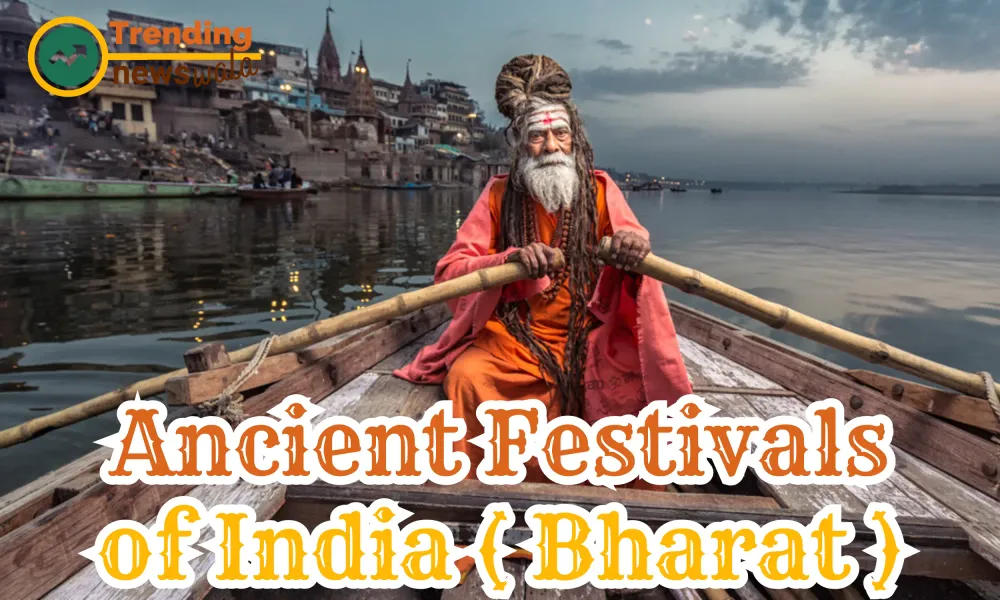 Launch apps instantly. Claim $200 credits on DigitalOcean
Launch apps instantly. Claim $200 credits on DigitalOcean
Embracing Tradition: Exploring the Ancient Festivals of India
Written by Aditya Pandey » Updated on: April 13th, 2024

Introduction:
India, with its rich cultural tapestry and diverse heritage, is home to a myriad of ancient festivals that have been celebrated for centuries. These festivals are not just occasions for merriment and revelry but also serve as a reflection of India's vibrant traditions, customs, and beliefs. Join us on a journey through time as we delve into some of the most ancient festivals of India, each steeped in history and significance.
1. Diwali: The Festival of Lights:
Diwali, also known as Deepavali, is perhaps the most widely celebrated and ancient festival in India. Symbolizing the victory of light over darkness and good over evil, Diwali is a time of joyous festivities marked by the lighting of oil lamps, fireworks, feasting, and the exchange of gifts. Homes and streets are adorned with colorful decorations, and prayers are offered to the goddess Lakshmi for prosperity and well-being. Diwali transcends religious and regional boundaries, uniting people in a spirit of shared celebration and renewal.
2. Holi: The Festival of Colors:
Holi, known as the festival of colors, is an ancient Hindu festival celebrated with fervor and enthusiasm across India. It marks the arrival of spring and the triumph of good over evil, with participants joyfully throwing colored powders and water at each other. Bonfires are lit the night before Holi to symbolize the burning of Holika, a demoness, and the victory of Prahlad, a devotee of Lord Vishnu. Holi is a time for forgiveness, reconciliation, and the renewal of friendships, as people come together to celebrate the vibrant colors of life.
3. Navaratri: Nine Nights of Devotion:
Navaratri, meaning "nine nights," is a Hindu festival dedicated to the worship of the goddess Durga and her nine divine forms. Celebrated with great fervor and devotion, Navaratri is marked by elaborate rituals, fasting, and nightly dance performances known as Garba and Dandiya. Each night of Navaratri is dedicated to a different form of the goddess, symbolizing the triumph of good over evil and the victory of divine forces over demonic forces. Navaratri culminates in Dussehra, the tenth day, when effigies of the demon king Ravana are burned to commemorate the triumph of Lord Rama over evil.
4. Pongal: Harvest Festival of South India:
Pongal, also known as Thai Pongal, is a harvest festival celebrated predominantly in the southern states of India, particularly Tamil Nadu. It is a four-day festival that honors the sun god Surya for a bountiful harvest and prosperity. The highlight of Pongal is the preparation of a special dish called Pongal, made from freshly harvested rice, lentils, jaggery, and milk, which is offered to the sun god as a symbol of gratitude. Pongal is also a time for family gatherings, feasting, and cultural performances, as people come together to celebrate the abundance of nature and the blessings of the harvest.
5. Ganesh Chaturthi: Honoring the Elephant-Headed God:
Ganesh Chaturthi is an ancient Hindu festival celebrated to honor the elephant-headed god Ganesha, the remover of obstacles and the god of wisdom and prosperity. The festival typically lasts for ten days, during which elaborate clay idols of Lord Ganesha are worshipped in homes and temples. On the final day, the idols are immersed in water bodies, symbolizing the return of Lord Ganesha to his celestial abode. Ganesh Chaturthi is marked by colorful processions, devotional songs, and elaborate rituals, as devotees seek the blessings of Lord Ganesha for success and prosperity.
Conclusion: Preserving Heritage, Celebrating Life:
The ancient festivals of India are not merely cultural events but profound expressions of India's rich heritage, spirituality, and unity in diversity. These festivals transcend boundaries of religion, caste, and creed, bringing people together in a spirit of joy, harmony, and celebration. As India continues to embrace modernity and progress, it is essential to preserve and cherish these ancient traditions that serve as a timeless reminder of the country's cultural legacy and collective identity.
Copyright © 2024 IndiBlogHub.com Hosted on Digital Ocean








Post a Comment
To leave a comment, please Login or Register